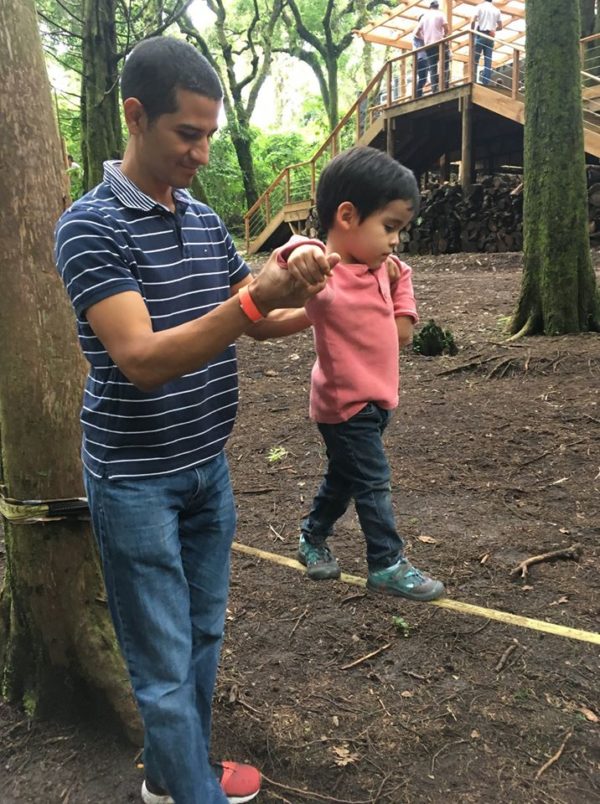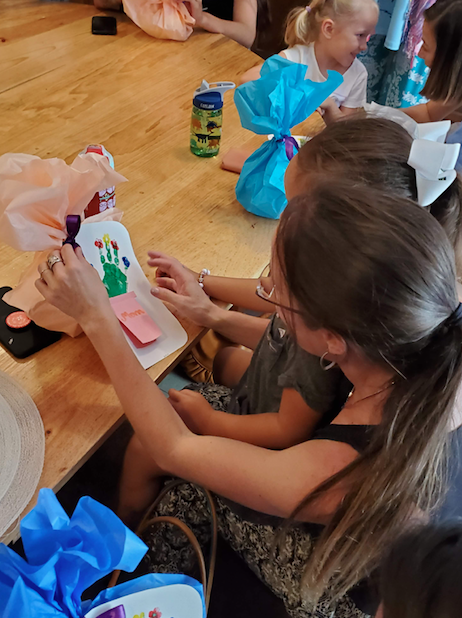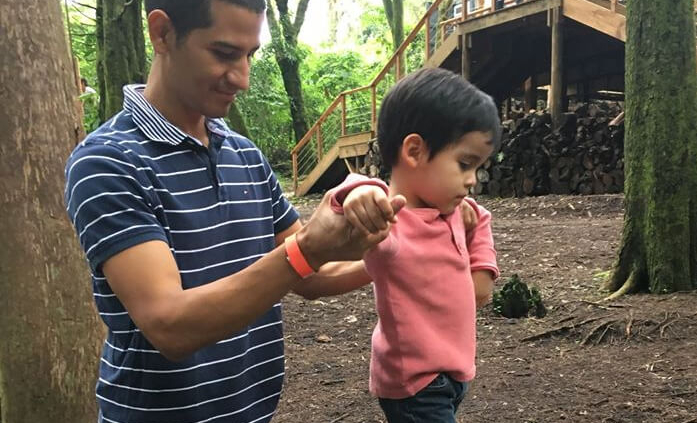How to get a young child to do what you would like?
«How to get a young child to do what you would like
without talking yourself to death »
Author- unknown
Things to consider for your children under 6 years old:
- Young children may seem logical to us, but they really are not as a primary mode. THEY REALLY LIVE IN THEIR LIMBS, IN MOVEMENT.
- When you really want the child to move into action, speaking to them can actually freeze them into immobility. All their forces have to rush up to the head to think and nothing is left over to move with.
- You, as the parent, are the child’s loving authority. Do not be afraid to claim that role. You will not be an ogre or despot (well, sometimes we might). The child is really reassured by a warm, confident adult who knows how things work in the world and who can show him/her the way.

- Help your child to begin to move, literally, before you speak. Or if you must speak, say something like, «It is time for coats now,» making a general statement instead of a command.
- Instead of reasoning with your child, try to tell an impromptu story about a similar situation. It is a rare child who is not instantly captivated by a story. As you tell the story, literally start your child’s limbs to move i.e., put arms into the sleeves of the coat, hand her one block to put away in the basket as you do likewise to model what you want her to do, etc.
- Do not ask your child a question unless it is really a choice.
- Limit the choices you give your child. Unless your child is exceptionally aware of clothes choices, etc., children are usually grateful to be spared making a choice. Set the meal in front of the child with a «Here’s breakfast». Think of yourself in a situation where you have to make a lot of choices; it can be exhausting. It is even more so for a little child.
- Set the «form» out ahead of time. This means to place the clothes for tomorrow out tonight, ready to be put on in the morning without having to make decisions about it.
- By either you or your child. Know what you will prepare for breakfast the next morning without asking what the family wants.
- Remember that each adult responsibility you take care of for your child allows the energy to be available for growing. We do a child a great service by pre-thinking and preplanning how things will happen — by creating a «form». Which will support both the child and ourselves, so there is order and predictability in our lives.

- These suggestions will help in many situations but not all. There will be times when you have to do battle. So CHOOSE YOUR BATTLES. Do not engage in a struggle of wills with your child unless you are committed to winning ‐‐ not for your sake, but for the children. This means you must be on home ground where time is not an issue. The supermarket is not the place.
- Before drawing the battle lines, see if you can turn the task at hand into a game or offer assistance. «Golly, these books are all scattered on the floor. They really are happiest sitting on the shelf. Here’s one for you and I’ll help, too. «Or» I’ll bet that I can pick up this pile of books faster than you can. Let’s race. «Or» I’ll choose my eyes and see if those books can jump back to their shelf without a sound. «
- If you are in a battle, state clearly to your child what must happen in objective terms. «The blocks are waiting to be put back into the basket». They will wait until your hands can help them. Then leave, if your child also leaves the site of the task, guide him/her back and restate the above. Try to do so calmly and without accusation or anger.
- Sometimes we will all lose our composure, become angry, and say or do things we regret, forgive yourself. We are each only human and parents are struggling and evolving human beings, too. It is no sin for a child to see an adult make a mistake and correct it, either with an apology later on or with a correction of behavior. It is comforting to know that others also make mistakes.









